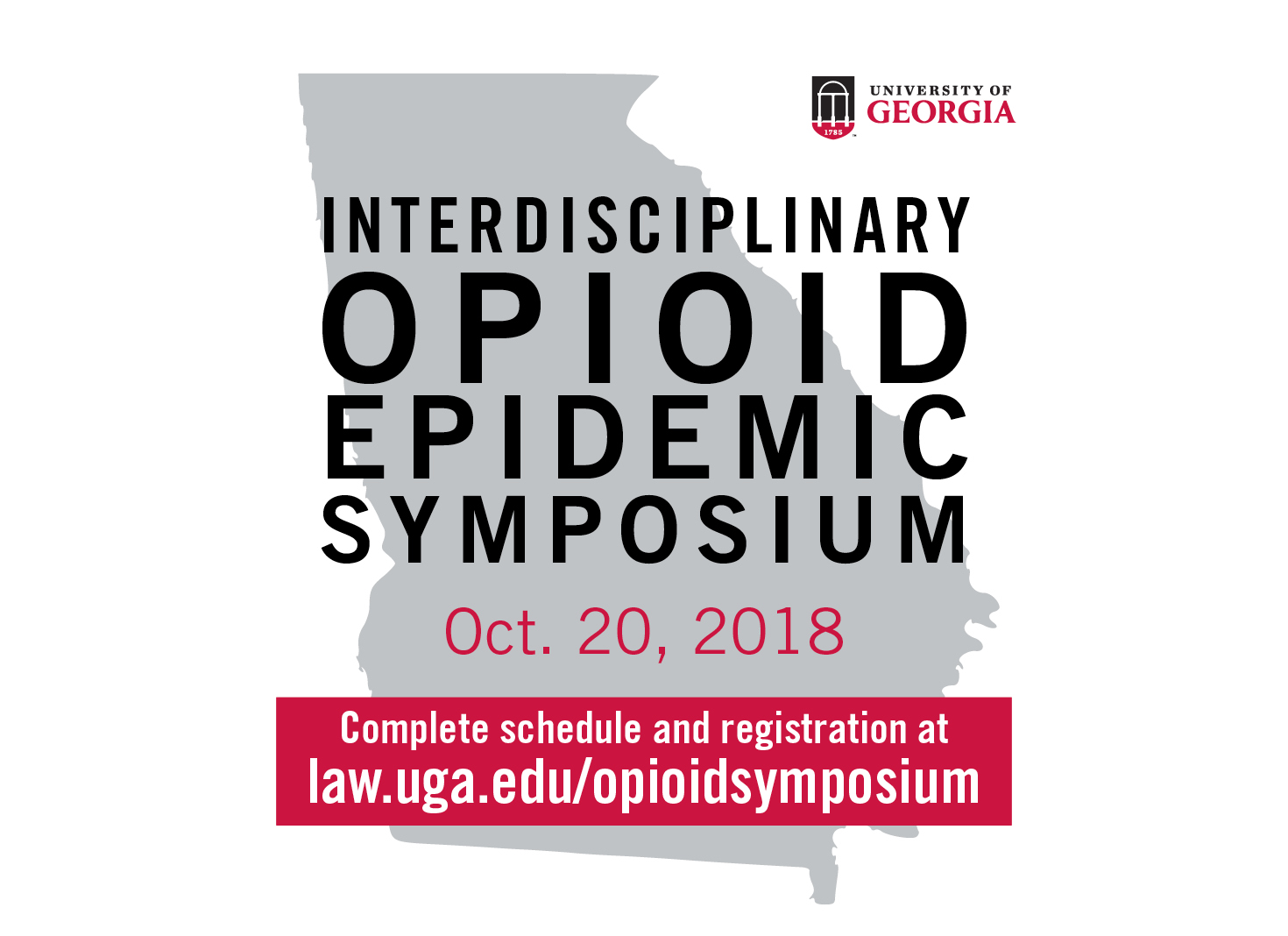The University of Georgia will host a symposium on Oct. 20 that will bring more than 200 researchers and policymakers together to seek solutions to the nation’s opioid epidemic.
The symposium will kick off at 9 a.m. in Room 101 of the Miller Learning Center with a lecture by journalist Beth Macy, author of “Dopesick: Dealers, Doctors, and the Drug Company that Addicted America,” a New York Times bestseller that the newspaper described as “a harrowing, deeply compassionate dispatch from the heart of a national emergency.”
Dr. Rita Noonan, who oversees the majority of opioid addiction prevention efforts that are funded by the Centers for Disease Control and Prevention, will deliver the lunchtime keynote at 12:15 p.m. in Room 101 of the MLC.
The symposium also includes panel discussions that will feature faculty members from the university’s College of Public Health, College of Pharmacy, College of Veterinary Medicine, School of Law, School of Social Work, School of Public and International Affairs and Terry College of Business. Additional panelists include representatives from the CDC, Georgia Department of Public Health and Northeast Georgia Health System.
The symposium will conclude with poster presentations during which faculty members and students from UGA, Emory University, Augusta University and other organizations will highlight results of their research and discuss current projects.
Fazal Khan, an associate professor in the School of Law who chaired the planning committee for the symposium, said the discussions at the symposium lay the foundation for policy briefs, white papers and scholarly articles that can inform policymakers, health care providers and other key stakeholders.
“Last year nearly 50,000 people died from the opioid epidemic in America,” Khan noted. “As shocking and tragic as that figure is, it significantly understates the impact of this crisis. The tentacles of this epidemic affect our society in myriad ways—in our schools, hospitals, prisons, workplaces and our homes. Given the public mission of this university, we felt a civic imperative to convene this interdisciplinary group of faculty and graduate students who are conducting research on opioids. Our goals for the symposium are to disseminate important research, foster collaboration across disciplines and ultimately to make a real-world difference in addressing this national crisis.”
The Interdisciplinary Opioid Epidemic Symposium is sponsored by the School of Law, School of Social Work, College of Public Health and Office of Academic Programs. The symposium is free and open to the public, but space is limited and registration is required.


